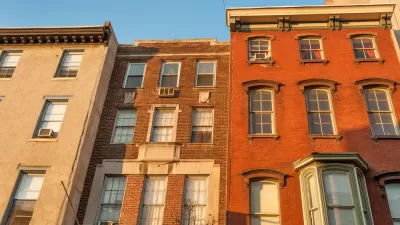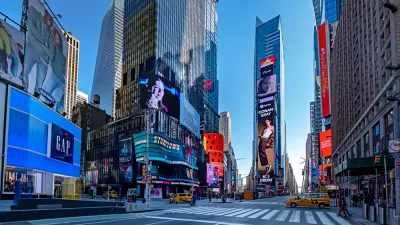The coronavirus crisis is highlighting the contributions of cities as well as their vulnerabilities and the planning issues that need to be priorities in the future.

"The impacts of the global COVID-19 pandemic are still being understood, but it does seem clear that this crisis will make a mark on cities, physically and socially, that will echo for generations," writes Rogier van den Berg.
While the pandemic has spurred debate about the role of density in the spread of the disease and efforts to contain it, urban density is needed for the provision of core services. "It’s the lack of access to essential services such as water, housing and health care, that has exacerbated the challenge of responding effectively to COVID-19 in many cities," says van den Berg.
Van den Berg also points out the clear need for access to affordable housing and public spaces and more holistic planning of green space. In addition, city and regional planning need to be better integrated, and more granular data needs to be part of post-coronavirus urban planning.
Cities will face many important questions in the future related to urban planning, says van den Berg. "Will we make cities more resilient to future crises? Will we make green and blue spaces front and center of our infrastructure investments? And will we seriously address the fact that it’s not just physically, but economically, socially and environmentally that cities are connected to their surrounding regions?"
FULL STORY: How Will COVID-19 Affect Urban Planning?

Alabama: Trump Terminates Settlements for Black Communities Harmed By Raw Sewage
Trump deemed the landmark civil rights agreement “illegal DEI and environmental justice policy.”

Study: Maui’s Plan to Convert Vacation Rentals to Long-Term Housing Could Cause Nearly $1 Billion Economic Loss
The plan would reduce visitor accommodation by 25% resulting in 1,900 jobs lost.

Why Should We Subsidize Public Transportation?
Many public transit agencies face financial stress due to rising costs, declining fare revenue, and declining subsidies. Transit advocates must provide a strong business case for increasing public transit funding.

Paris Bike Boom Leads to Steep Drop in Air Pollution
The French city’s air quality has improved dramatically in the past 20 years, coinciding with a growth in cycling.

Why Housing Costs More to Build in California Than in Texas
Hard costs like labor and materials combined with ‘soft’ costs such as permitting make building in the San Francisco Bay Area almost three times as costly as in Texas cities.

San Diego County Sees a Rise in Urban Coyotes
San Diego County experiences a rise in urban coyotes, as sightings become prevalent throughout its urban neighbourhoods and surrounding areas.
Urban Design for Planners 1: Software Tools
This six-course series explores essential urban design concepts using open source software and equips planners with the tools they need to participate fully in the urban design process.
Planning for Universal Design
Learn the tools for implementing Universal Design in planning regulations.
Smith Gee Studio
Alamo Area Metropolitan Planning Organization
City of Santa Clarita
Institute for Housing and Urban Development Studies (IHS)
City of Grandview
Harvard GSD Executive Education
Toledo-Lucas County Plan Commissions
Salt Lake City
NYU Wagner Graduate School of Public Service





























